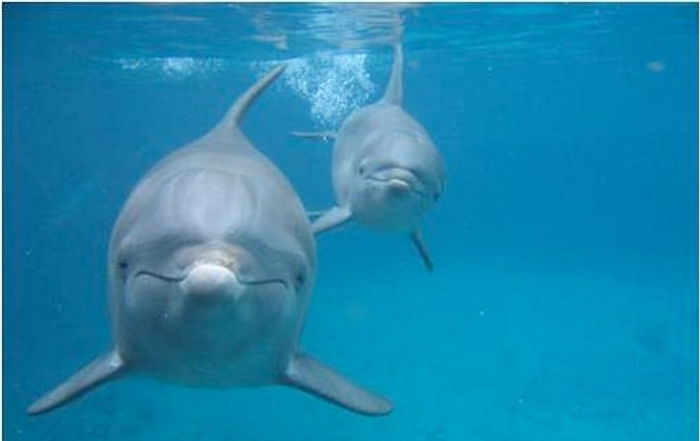By: Yiran Liu
Female bottlenose dolphins change their tones when addressing their offspring. Researchers observed nineteen mother dolphins’ whistles with their calves. The whistle is very unique because it represents an important signal, like calling someone by their name. “They use these whistles to keep track of each other. They’re periodically saying, ‘I’m here, I’m here,” said study co-author Laela Sayigh, a marine biologist in Massachusetts.
When the mother dolphin addresses their offspring, their pitch is higher. For more than thirty years, scientists have put special microphones many times on the same dolphin to record their signature whistles. “This is unprecedented, absolutely fantastic data,” said Mauricio Cantor, a marine biologist who was not involved in the study. “This study is the result of so much research effort.”
The reason for the use of baby talk among various species, such as humans, dolphins, and other animals, remains unclear. However, researchers suggest that baby talk may assist in teaching newborns how to produce new sounds. Research from the 1980s shows that infants may respond better to those speaking with a broader range of pitch. Other animals, such as female rhesus monkeys and zebras, may alter their calls to keep their offspring engaged and adjust their pitch and tempo when communicating with their offspring.
When studying dolphins, researchers focus on their signature call and they can not tell if the dolphin also uses this way of communication for other purposes or if it would only help offspring learn to communicate like humans do. “It would make sense if there are similar adaptations in bottlenose dolphins — a long-lived, highly acoustic species” where calves must learn to vocalize many sounds to communicate, said Frants Jensen, a behavioral ecologist at Denmark’s Aarhus University. Getting the calve’s attention might be another possible reason for using special pitches.
Mother dolphins communicate especially to their offspring at a higher pitch than usual. They do this because it communicates a special signal to their child.











